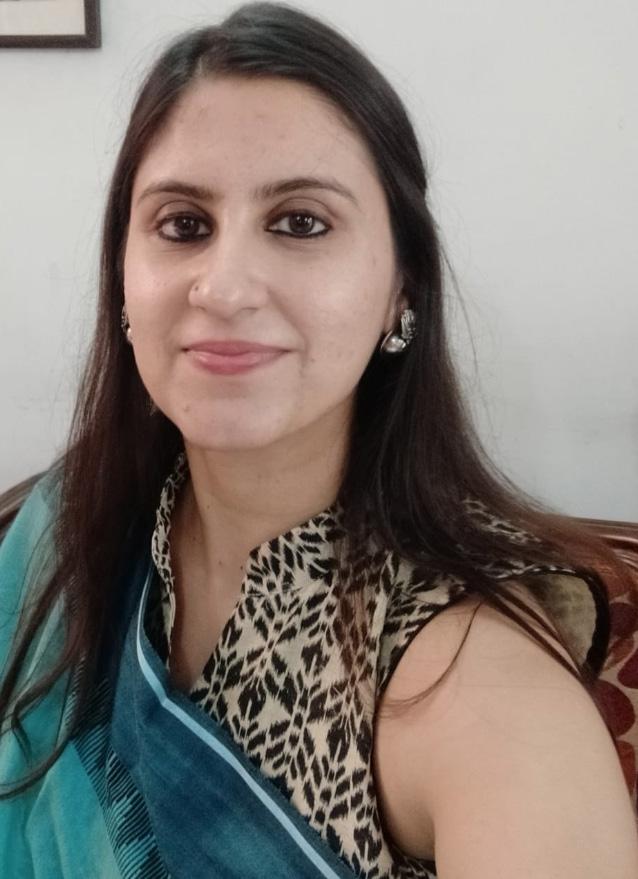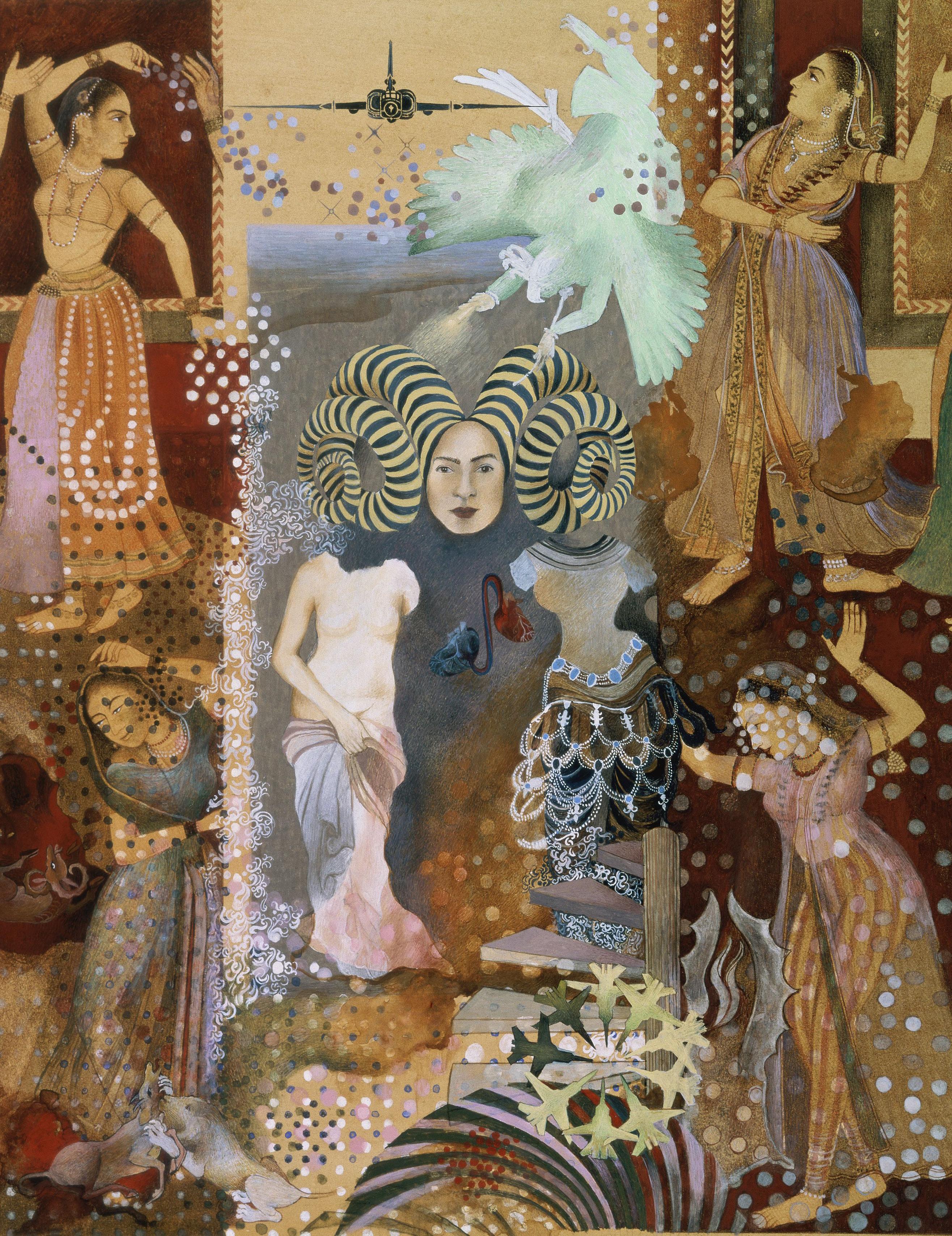
7 minute read
The Vernacular Option
from SEEMA Magazine
by SEEMA
Aneesha Jyoti, the co-founder of Language Curry.
The biggest challenge was dispelling the ‘myth’ that there is no need to learn Indian languages if you know English. This was the first question we posed to expats, NRIs, and urban migrants. The answer was a resounding ‘NO.’ Fast forward to 2021 and we have over 350k downloads from 170+ countries.

TWO MOMS HAVE CREATED AN APP THAT TEACHES THE WORLD HOW TO SPEAK INDIA'S REGIONAL LANGUAGES.
MELANIE FOURIE
According to BBC News, India is the world’s second-largest English-speaking country, with roughly 10% of its population and more than 125 million Indians speaking the language. It’s the official language of corporate business, higher education, the higher judiciary, and the media. However, since the official language of government is Hindi and since there are a wealth of regional languages, the country has no national language. So it helps if Indians can understand each other’s mother tongue.
This was the problem that friends Vatsala Sharma and Aneesha Jyoti decided to address when, in 2018, they put together an app, Language Curry. It currently teaches seven regional Indian languages, using English as the medium. The startup also offers translations and live sessions. SEEMA interviewed the two moms.
COULD YOU TELL US A LITTLE BIT ABOUT YOURSELF?
VATSALA: I grew up in Delhi, a melting pot of Indian culture. I was always fascinated by languages, since my friends were Bengali/ Tamil or Punjabi. After becoming a chartered accountant, I joined Standard Chartered Bank and had worked there for eight years when the entrepreneurial bug bit me. The trigger was my love for my son. I wanted to justify my time apart from him (in work) to do something I really enjoy and thrive in. So I turned in my papers and became an entrepreneur. ANEESHA: I grew up in India till I was 17 and then my family immigrated to Canada. It was a huge move for us, and my parents were very particular that my sister and I should not lose connect with our culture. They ensured we still speak in our mother tongue at home and remain confident of our Indian roots. I lived in Canada for more than nine years and moved back to India in 2011 to do my MBA at ISB Hyderabad.
HOW DID THE CONCEPT OF LANGUAGE CURRY COME ABOUT?
VATSALA: Aneesha discussed the idea with me, sharing her experiences as an NRI. The issue touched a chord, since many of my cousins in the U.S. could relate to Aneesha's experience. But there was another deeper reason. My mother is from Rajasthan, and like many would speak to her parents in Marwari (a Rajasthani language), and to us in Hindi. As a result, while I know the language (having heard her speak to elders), I did not have the conversational skills/confidence to speak it. When I grew up, and saw people of various regions (even Rajasthani) connecting with others through a common language, I would feel a sense of 'not belonging.' We started researching the issue and met hundreds of people who had different motivations to learn Indian languages. There were mothers of children who got admission in Bangalore, expats who had just moved in, or those who had married an Indian. We finally started working on the app in 2018. ANEESHA: My stay in Canada, my interaction with Canadian Indians as well as non-Indians, made me realize that many wanted to connect with India for cultural reasons. The first connect to any culture is language. This is what inspired the idea of Language Curry. The idea stewed in my brain for many years until I met my two co-founders, Vatsala Sharma and Puneet Sharma, who were equally passionate about India.
DO YOU HAVE A BACKGROUND IN LINGUISTICS? IF NOT, WHERE DID THE LOVE FOR LANGUAGES STEM FROM?
VATSALA: No. I have always loved languages while growing up, and studied English, Hindi and Sanskrit. But like many South Asian children, I chose a safe 'commerce' (if not science) field. Being in Delhi I was exposed to people from various regions in India, and knew a bit of Punjabi and Bengali as well. So I guess the nine-year-old girl who would be lost in the world of books and fiction finally found her way back.
In a way my lack of linguistics experience has proven to be an advantage, since I can view lan-
guage from a layman/consumer's perspective. That is why we have been able to break languages into very small bite-sized capsules to make anyone learn them on our platform, quickly and efficiently. Our team, comprising linguists, language experts, and speakers, ensures a holistic product with a focus on grammar that is super easy to understand. Aneesha: I have an engineering and MBA background, but my paternal grandfather had a PhD in linguistics and would often encourage me to write and be proud of our languages. I often think it's him conspiring from the heavens above and guiding me.
WHAT WERE SOME CHALLENGES YOU FACED WHEN YOU FIRST STARTED LANGUAGE CURRY?
Vatsala: The biggest challenge was dispelling the 'myth' that there is no need to learn Indian languages if you know English. This was the first question we posed to expats, NRIs, and urban migrants. The answer was a resounding 'NO.' From getting discounts on auto fare, to staving off a molestation attempt, knowing the local language helped many people. We met a Japanese expat who put it perfectly, “When you speak to Indians in their language, there is a smile which touches their eyes." Fast forward to 2021 and we have over 350k downloads from 170+ countries.
Aneesha: Because not much research has been done on Indian languages being taught colloquially, it was tough to find the right teachers to develop content. We learned how the best language-learning apps operated, and then worked with teachers to develop a structure for language learning. This took us over six months initially. We are still continuously improving.
HOW HAS THE COMPANY BEEN COPING WITH THE PANDEMIC?
Vatsala: The pandemic hit just when we were fundraising. Our personal lives were upended, too, with everyone in the family being forced to live together 24/7. But we took up the challenge, working till about 4 each morning, managing with five hours of sleep and loads and loads of coffee.
We had been working on introducing live courses for our learners for a few months already, so we accelerated the Live Learning launch and started monetizing the app. Aneesha: COVID was a boom for the Edtech sector. People took to online learning, so it helped us professionally. The only challenge was on the personal front. As mothers we had to manage homes, work, and children. The best hours for work were taken away due to children’s live classes, the home chores, and having to entertain our kids.
DO YOU HAVE A SPECIFIC WORK ETHIC?
Vatsala: Empower your colleagues. In today's times it is insulting to employees to micromanage them. I believe the best work is delivered when one is given the freedom to take risks and make decisions. Aneesha: Persistence and hard work - these two are essential for entrepreneurship. No journey will be smooth but if you know you have given it your best, you can sleep in peace.
DO YOU HAVE A MESSAGE FOR OTHER SOUTH ASIAN WOMEN, ESPECIALLY THE ENTREPRENEURS?
Vatsala: Women in general, and South Asian women in particular, are the ultimate multi-taskers, perhaps living up to the image of Ma Durga.
It’s important for women to take out time for themselves, and not set up extremely high standards for each and every aspect of their life.
It’s OK if the laundry is not folded, or the children had one meal out of a packet while you were meeting a deadline, or even out for a run. We are human, not goddesses (although we would like to be one). Aneesha: Never shy away from giving your dreams a chance. Our rich culture and family system provides us with a strong support system. It's an asset if you think wisely and are resilient. There are so many inspirational South Asian women in India and globally today who guiding lights for all of us.
HOW DO YOU RELAX OR UNWIND IN YOUR SPARE TIME?
Vatsala: I turn to my two boys, who are 7 and 4, respectively, for instant relaxation. Their fierce hugs melt away all the stress. I am also an avid reader and amateur painter.
Aneesha: Spare time is a blessing when you are an entrepreneur. I go for a walk and zone out in nature, read a book, or go shopping.
WILL THERE BE NEW DEVELOPMENTS IN LANGUAGE CURRY?
Vatsala: Yes, more languages, and loads of gamification. We have an arsenal of interesting and efficient ways to learn languages. Aneesha: Yes there are many exciting features in the works to help learners learn better and have fun along the way. We aspire to be a global brand for Indian languages and culture.










